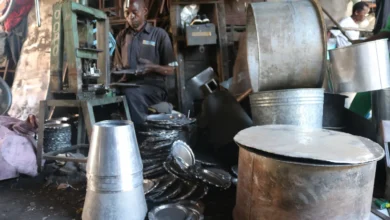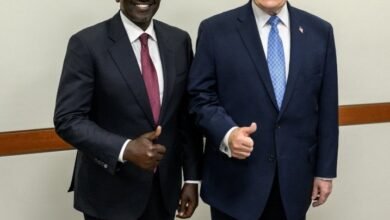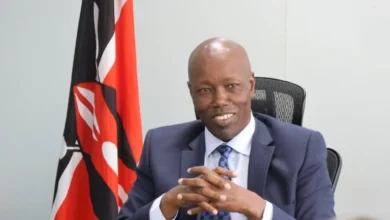
The Kenya Shilling weakened further against the U.S Dollar Monday, indicating a piled pressure on commodity prices Kenyans are struggling to pay for, majority of whom are still reeling from COVID-19 ravages.
According to the Central Bank of Kenya (CBK), the shilling is currently trading at 116.9 against a dollar, just 0.1 units shy to hit 117 record level.
This is a 0.17 percentage point drop from last Friday when the shilling closed at 116.7, partly attributable to increased dollar demand from the oil and energy sectors as well as the manufacturing sectors.
High dollar demand in the market has seen one of Kenya’s cooking oil manufacturers, Pwani Oil, temporarily shut down its firm.
According to Pwani Oil Commercial Director Rajul Malde, banks have been processing half dollar of their requests, making it hard to import enough crude oil to sustain the processing of cooking oil in the country.
“Getting sufficient amount of dollars required to support the factory in terms of getting sufficient raw materials is not happening. We are not even running the plant right now because of lack of raw materials.,” said Malde.
It is the lowest the Kenyan shilling has ever depreciated against the dollar. On a year-to-date basis, the shilling has depreciated by 3.3 percent against the dollar, in comparison to the 3.6% depreciation recorded in 2021.
This pressure against the dollar is likely to continue due to the following factors;
i. Rising global crude oil prices on the back of supply constraints and geopolitical pressures at a time when demand is picking up with the easing of COVID-19 restrictions and as economies reopen.
ii. Increased demand from merchandise traders as they beef up their hard currency positions in anticipation for more trading partners reopening their economies globally,
On May 30, KAM asked the Central Bank of Kenya (CBK) to implement actions that would return the dollar market to predictability and, crucially, to “supplies of currency as and when needed in order to restore confidence in the market.”
The reserve bank Governor Dr. Patrick Njoroge, however, allayed fears of a dollar shortage in the market.
Dr. Njoroge rubbished manufacturers’ claims that constraints in dollar supply were forcing them to buy the greenback at more than Ksh.120 compared to the central bank’s official average exchange rate.
CBK’s record shows that Kenya’s foreign exchange reserves, which are largely tapped for debt payments grew to Ksh.960.8 billion on Thursday last week, or the equivalent of 4.89 months of import cover, from Ksh.948.8 billion a week earlier.





